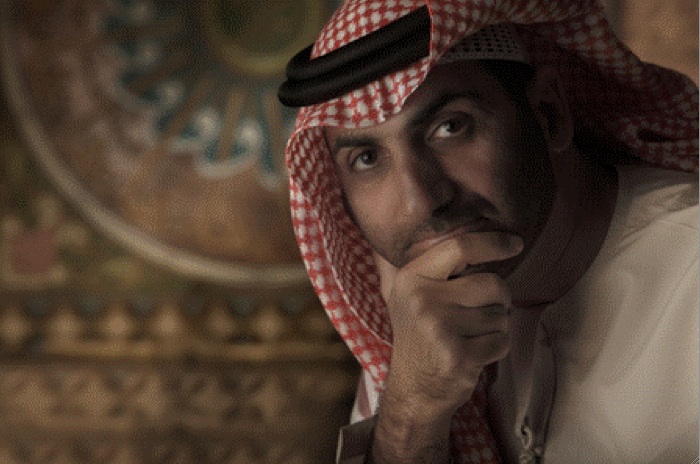 Green Prophet interviews the Green Sheikh, from the United Arab Emirates. He’s looking to change the “green” perceptions and reality of the Middle East.
Green Prophet interviews the Green Sheikh, from the United Arab Emirates. He’s looking to change the “green” perceptions and reality of the Middle East.
The environment movement is no stranger to royalty: Prince Charles, the Prince of Wales has made his commitment to supporting the green movement, and over in Jordan, Prince Hassan has told Green Prophet that he’s committed to water protection and environmental education for his people. But green royalty from wealthy oil nations? From a ruling royal family in the United Arab Emirates, Green Prophet has befriended Sheikh Abdul Aziz bin Ali Al-Nuaimi, better known as the “Green Sheikh.“
Sheikh Abdul Aziz, 44, is the nephew of Highness Sheikh Humaid bin Rashid al-Nuaimi (Arabic: شيخ حميد بن راشد النعيمي) – the Ruler of Ajmān and member of supreme council of the United Arab Emirates (UAE), one of the seven emirates of the United Arab Emirates UAE federation.
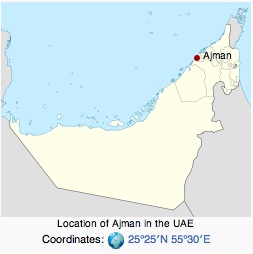
An emirate is a political territory that is ruled by a dynastic Muslim Monarch-styled emir. Ajmān, where the Green Sheikh lives, covers an area of just 260 km2 and is located along the Arabian Gulf. About 95% of the people in Ajman (population of 360,000) live in the city of Ajman. Historically the Emirate was was known for its fishing and trade industries; more recently as guardian of some of the UAE’s oil reserves, and for property development.
Gaining a reputation for his zealous interest in environmental issues, which started as a child, Sheikh Abdul Aziz, today is CEO of the of Al Ihsan Charity Centre, which supplies food and essentials to the needy. He has a life mission which is guided by Islam: “to achieve all manners of excellent deeds for the satisfaction of Allah (God).”
In that mission is protecting the environment.
Educated in chemical and petroleum engineering, with an MA in environmental management, and a PhD in clean production and industrial ecosystems, Green Prophet interviews this newcomer to the green scene, with high hopes that the Green Sheikh will radically reform education and respect for the environment in the Middle East.
He’s won awards for his research, and the Mayor of Miami has given the Green Sheikh a key to the city. He currently advises the public, private and academic sectors on environmental issues.
Here’s our interview:
How has your passion for the environment influenced any policies in the Middle East?
I’ve activated and coordinated the formation of environmentally and socially responsible non-governmental organizations; I have created partnerships between public, private and local communities; have advised and raised awareness among decision makers, have participated in steering committees for strategic sustainability in major sectors, and have promoted these issues in the media in the regions of the United Arab Emirates, the GCC (Arabian Gulf Region), and in some other Arab countries, like Jordan.
Whatever inspired you to become a “Green Sheikh”?
It started in my childhood, when my father would train falcons to take with him on hunting trips. Subconsciously I had learned the balance of ecosystems without knowing. Also through my education in high school (science), and when I continued my career as a chemical and petroleum engineer, and worked in LNG Plant. This impacted me heavily.
I was the chairman of Environment Friends Society in the UAE for few years and was leading the Union for Youth and Environment in the region: I’ve been to the Antarctic as a polar explorer, have been awarded volunteering and competitions, and I love the colour green: the way to paradise!
Is there any Islamic philosophy guiding your way; or are you self-made?
Yes, I am following the core values of an Islamic philosophy based on appreciation and respect. The environment lies at the core of the Islamic faith, and the underlying principal that forms the foundation of the Prophet Muhammad’s holistic environmental policy is the belief in the interdependency between all natural elements, and the premise that if humans abuse or exhaust one element, the natural world as a whole will suffer direct consequences.
The three pillars of the Prophet’s environmental philosophy are based on the Quranic teachings and the concepts of tawhid (unity), khalifa (stewardship) and amana (trust).
In line with the concept of tawhid, the Prophet acknowledges that God’s knowledge and power covers everything which is why abusing any of his creations (a living being or a natural resource) is considered a sin.
The Quran explains that humankind holds a privileged position among God’s creations on Earth: he or she is chosen as khalifa, “vice-regent” and is entrusted with an amana – the responsibility of caring for God’s earthly creations.
The importance of sustaining the environment was highlighted by Prophet Muhammad:
“When doomsday comes, if someone has a palm shoot in his hand, he or she should plant it,” which suggests that even when all hope is lost for humankind, one should sustain nature’s growth.
How has your family and friends reacted to your green passion?
My family and friends continue inspiring and encouraging my passion, momentum and vision for a noble cause, even though there are many obligations and priorities.
What do you think are the biggest environmental problems in the Middle East, and what can Arab Nations do to change them?
The major challenges:
Water demand in the region is on the rise, as we live in the world’s most dry area, water is represents a challenge to the development and sustainability of the region’s economy.
What can be done:
- Reinforcement of environmental regulations
- Environmental awareness among decision makers
- Databases and required information for environmental planning and policies
- Public, private partnership is needed to address water challenges
- Investment needed for the infrastructure and technologies of water and wastewater
- Adaption of integrated water resources management
- Put in place national polices for short and long term goals
- Water demand management programs based on considering water as public goods without depriving the disadvantaged people
- More efficient wastewater treatment technologies and reducing the cost of desalination processes.
Who do you think has more power to change the green problems in the Arab world: the people, the religion, or governments/ruling family?
If in the Arabian Gulf countries (GCC) it would be the royal families with government support, using religion values and the support of people. If in other than Arabian Gulf Countries, it would be the government, represented by the president.
If you had one wish, what would it be?
Holistic living which describes one as being connected to the daily circle of life; balancing the spiritual, the intellectual, the physical, the emotional, the aesthetic, the environmental and my own inner peace to help spread peace throughout the world and in the process achieve wisdom.
Do you have any criticisms of the environment movement in the West (i.e. Europe and the US)? What are they?
Normally I never criticize anyone involved in noble causes and try to help people with their well being and try to sustain life for all God’s creation.
My values are based on those short letters:
3C’s and 3L’s:
No complaints…No comparison…No criticisms
Learn more…Love more…Lend more
What can the West learn from the Middle East?
- Learning more about the true values of Islam
- From Muslim women’s rights and her duties
- History and heritage
- Cultural understanding
- Respect
- Family relationships and tradition
- Social responsibility
- Arabic Hospitality
- Arabic art and music
- Our food and spices
- Arabic medicine
- Indigenous Arabs (Beduin from Al Badiyah or the deserts) have a lot of wisdom to share
Please let us know about a few of your favourite environment heroes, projects or organization anywhere in the world?
Heroes:
- The Late Sheikh Zayed Al Nahyan (Founder and president of the UAE)
- Robert Swan
- Frederic Hauge
- David de Rothschild
- Al Gore
Favourite Organizations:
- UNEP (United Nations Environment Programme)
- WANA Forum
- Green Peace
- Earth Scan
- Friends of the Environment
Favorite Green Projects:
- Masdar City (World hub of renewable energy)
- E-base in Antarctica
- Industrial Symbiosis in Denmark
If you could meet one person, alive or dead, who would it be and what you ask them?
I’d like to meet Abraham the Father of Prophets and ask him: How can we learn in our modern day the lessons from the sacrifice of your son?
What are you currently working on now?
A new charity hospital with capacity of 50 beds specialized for less fortunate families in the UAE, and a new school for talented and less fortunate children, on a training centre for empowering young leaders and endowment projects.
Thank you!

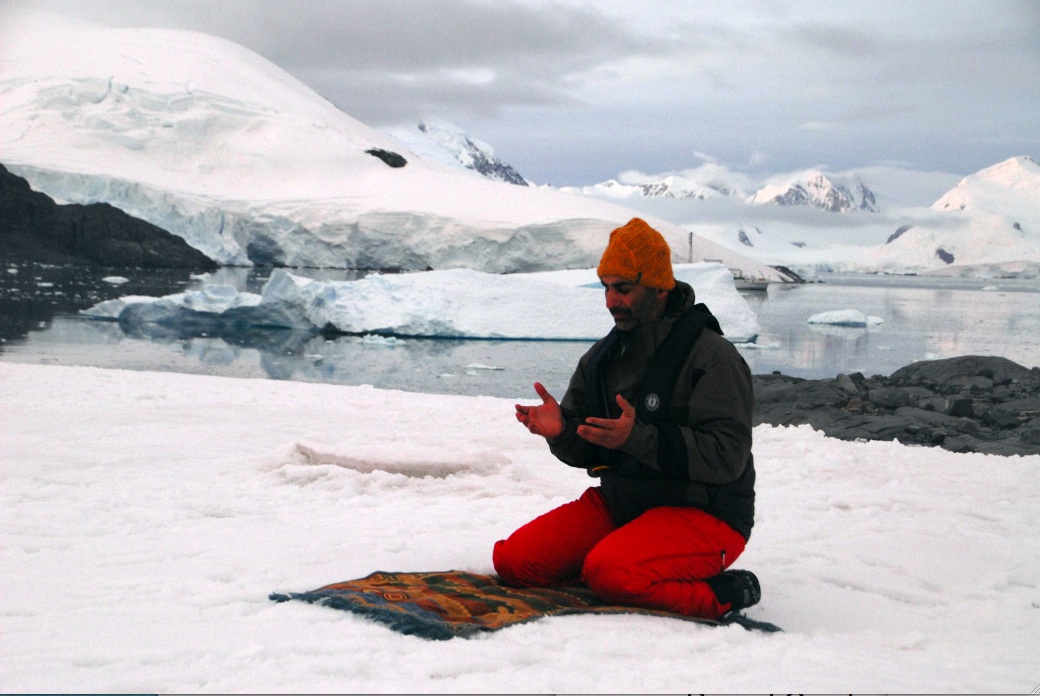
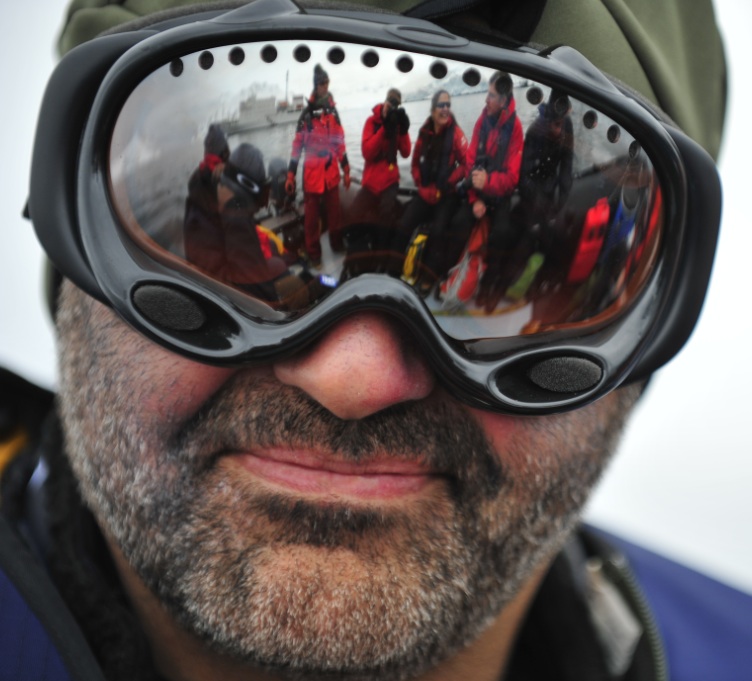

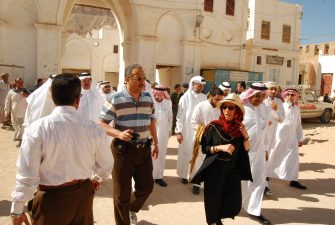

UAE is trying to create good relations with other countries by inviting the foreign delegates of the other countries so often as recently Malaysian Ambassador to UAE, Ahmed Anwar Bin Adnan also visited UAE. UAE is leaving no stone unturned to boost bilateral relations with major countries and deep-rooted brotherly relations with Islamic countries.
Fantastic to read the article. It is inspiring to read about the devotion for Green Solution of H.H. Sheikh Abdul Aziz.
This Mother Earth is not inherited from our ancestors but rather borrowed from our future generations.
Sustainability and Sustain Solutions can only solve many environmental situations.
Emirates in general have achieved a lot and regarded as the “Most Innovative Economy in the World”. Innovations can play an integrated and pivotal role in maintaining the status of the highest award.
Utlilizing water resources, proper waste management, addressing energy shortages, and educating the future generation are some of the areas where Sheikh is playing a pivotal role.
Best wishes
Zack – tell us more about your company – email me at [email protected]
Hello H.H.Shaikh Abdul Aziz,
I wonder if you recollect me – we were about to start a project in Ajman for airconditioners and the project could not take shape due to delays in getting permission from Indian Government.
I have been involved in improving energy efficiency in all types of air conditioners.
We have a joint venture with USA company which manufactures and sells Lubricants for air conditioners. This lubricant improves cooling performance of air conditioners and reduces friction in the compressor as a result energy is saved from 5% to 20% plus.
We have recently sold to Hilton in Abu Dhabi and discussion is on for Ajman City Centre – which is under AL FUTTAIM contract.
I would be dellighted to establish contact with you and work out how we can work closely in your efforts to reduce carbon emission and save power for UAE.
Do let me know your views at [email protected] and I shall send you more details on these opportunities.
With best wishes to your brother.
Geev Panthaki.
Stop killing male calves let them grow to be oxen and they can help us generate electricity humanely, and effectively like they do at the Hare Krishna temple although this is a new concept but it is like ploughing the land and aslong as they get equal free time in the fields, this could work on a Ahimsa worldwide scale.
salaam
would like to converse with green sheikh
i am anactive campaigner for environment protection
green sheikh is doing many positive work in terms of environmental protection
shukran
ma-assalaam
A very good interview. Helpful. Deep insights in the more or less mystic structures of mankind’s origin. And a light of hope for a succeeding future.
Assalam Alykum dear green sheikh
i’m from IRAN .i like nature and your projects.my brothers stays in UAE .i work a lotof time in desert region.
At all, i like to visit U and i think i can be your good friend.
maa salama
A very interesting and inspiring article and interview. I too learnt about the balance of life within ecosystems during a rural childhood; and this has always lead me to expect that those who work the land are aware of the problems and how to solve them; whereas those from an urban background can only learn if they come to believe that it is important for them to imbibe this specific knowledge.
Thoughout the history of our planet those involved in hunting and farming have understood the significance of the carrying capacity of an area e.g. it is generally assumed that to provide adequate food for one cow (without the purchase of anything) it is necessary to have 2.02ha (5 acres) in a temperate climate. If one has 2 cows on the same area then food has to be brought in, or neither gets enough to eat; 10 cows and they die of starvation. It would seem that we humans, of all faiths, need to learn and apply this knowledge to our own situation. It is not the religions that are at fault, but rather our interpretations of them!
I sincerely hope that Sheikh Abdul Aziz is successful in his huge range of projects to improve the lives of others, within the necessary constraints of truely holistic living.
[email protected], to know more about the youth initiative in UAE coming very soon and very LARGE
Assalam Alykum,
We are inshallah starting a Youth Initiative, aimed at promoting environmental care and community service especially for the youth.
We are based in UAE, and I would like to get contact details of this person.
Thanks!
…yes, nice article…when I left the very “green” San Francisco in 2003, so as not to support the new crusades, and to show my children we must act on our beliefs, not merely espouse them, I purchased apartments in Ajman…some, being built, by the sheik’s family. They have the money, we have no apartments or residency……happy the “sheik’s” money is going to the less fortunate.
hola i am looking for a ecological partner save beautiful shore & historical araucarias to be cut , in a project logdes hotels wiht a new paradism of what is coming in this beautiful planet earth bliss
veronica muñoz bunster
http://www.elmaresmijardin.blogspot.com/
56 657869527
alhamdulilah going on the right path , may allah give him the power to do better for human kind and all the alive and natural things
The second time today that I read about him.
Very good interview indeed!
I also like his 3c’s and 3l’s – I am working on that 😉
3c’s and 3l’s!!iam going to go with that!
I’m really proud that we have such a person in the Gulf region
Well. Do we think it’s neat that fundamentalist Muslims are environmentally friendly? Sure. Do we think it’s neat that we can learn from a Muslim woman’s “rights” and “her duties?” No.
Does this sector of Earth have any desire to move into the last five centuries?! Can we really take people seriously who oppress half their population? No.
As you know Gulf region is driest region in the world.Average freshwater availability is 30% below the level needed for water security.Today 11 Arab countries suffer from water scarcity and this number is anticipated to reach 18 by 2025.(Gulfnews,july 12,2010).
Desalination plants dotting the coast line from Dubai to Kuwait are legally flushing brine or waste water, carring chlorine and metals into the Arabian Gulf by tonne every day.
Antiscalants to reduce scale formation in desalination plants can produce increased and harmful algae growth when pumped back to the ocean and recent links to devastating red tide have been made between the industry and the marine environment.
Brine’s increased salinity can reduce vitality and biodiversity while chlorine is very toxic for many organisms in the mixing zone in an area where effluents are dilured before flushing.(Gulf news,15 june,2009).
In this case we are russian reseachers suggest to use for prevention of ecological catastrophe in Gulf region our project (Gulf news,10 august 2009)and see attachment.Also see website:http://khalidov.net/eng/and http://www.icetrim.org.
Our project is last chance to save GCC (Gulf region) from huge ecological catastrophe.Please pay more attention for this Global Project and only Your effort,Sheikh Abdul Aziz, can save Gulf from huge ecological catastrophy.
15 human being are dieing each minute because of water bad quality, 8 Million per year, real heroe is the one who can do something and do it, others are just bla bla bla business men.
I need to meet you my idea about clean energy surpasses all thats out there,I dont want or need your money just someone who will listen
Sincerely,
Sandra Lee
Fabulous article!
What a beautiful article and incredible person. Thank you for printing this. I would like to offer my thoughts in response to the gentleman’s question – “I’d like to meet Abraham the Father of Prophets and ask him: How can we learn in our modern day the lessons from the sacrifice of your son?” – it’s a timeless truth, when we subliminate our self-centred desires for HaShem’s, that is the lesson, but how to understand what that desire is, is the challenge, I believe, its that G-d love’s all his creations and wants the best for all and for us to not only follow the instruction manuals he gave us with the Torah, or in your case, the Koran, but to read them with the desire to find the way that most benefits mankind, we can choose how we perceive things to a large degree. 2nd, G-d wants us to enjoy the gift of life and we do this by connecting all of life’s gifts to their source and using them properly. I wish you blessing in all your acts of kindness for your people and others, Shana Tova.
very intersting interview, i like it that the shick is looking for holestic modelsi know so many green place s invermental projects witch was abanded because people init could not live together in peace,the first sustanability is the human sustenability.i invite you to learn more about building trust with humen and nature via http://www.tamera.orgaida shibli
Very interesting interview Karin. Green Prophet has shaped up to be the place where I get most of my environmental news on the Middle East. Sheikh Nuaimi's point about water being the most important issue in the Middle East is no doubt a poignant one that should be taken into consideration in future development and security planning in this region.
It’s great to see leaders in the Middle East actively engaging with environmental issues. I was particularly struck by the Sheikh’s comment that one of the things that inspired him to devote his time and energy to the environment was seeing his father train falcons for hunting, and coming to realize that all parts of an eco-system are connected to one another. I think this is something that needs to be emphasized more when it comes to educating people about the importance of respecting and preserving the natural world – we need to find ways to help people see these connections on a deeper level. It also seems like he is very aware of some of the most pressing environmental issues facing the region, including water scarcity and long-term planning to address natural resource problems facing every country in the Middle East. His comments about the connections he sees between basic tenets of Islam and environmental responsibility also struck a chord with me. As the editor of the New Vilna Review, I spend a good deal of time writing about Jewish identity in general, and often about Judaism and the environment. I found it fascinating to get a glimpse in this interview into how a leader of another faith draws a connection between his own beliefs and a responsibility to care for the earth. Perhaps the Sheikh would someday be interested in working Israeli leaders and organizations to help address some of the serious challenges faced by both nations, when it comes to natural resource management and ecological preservation.